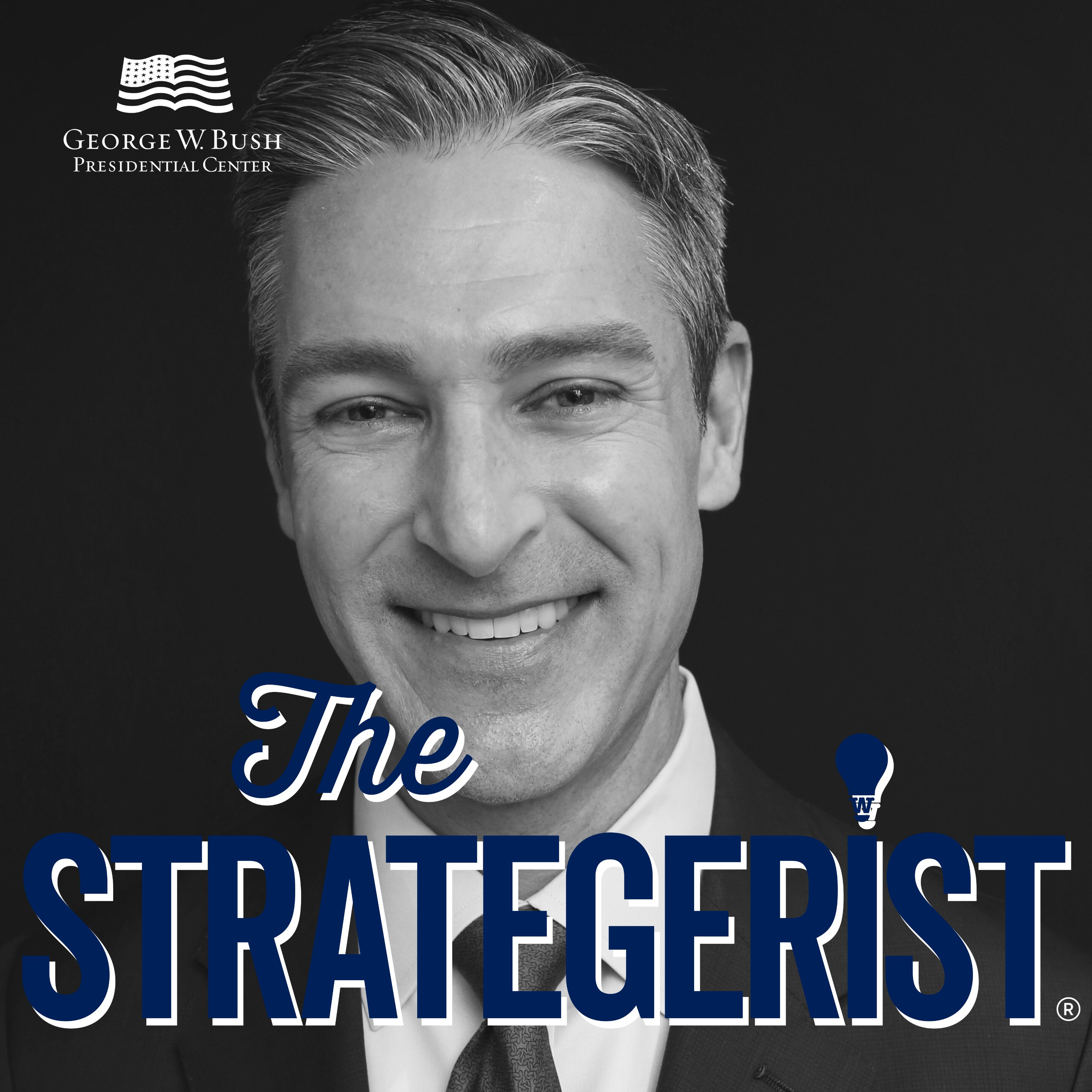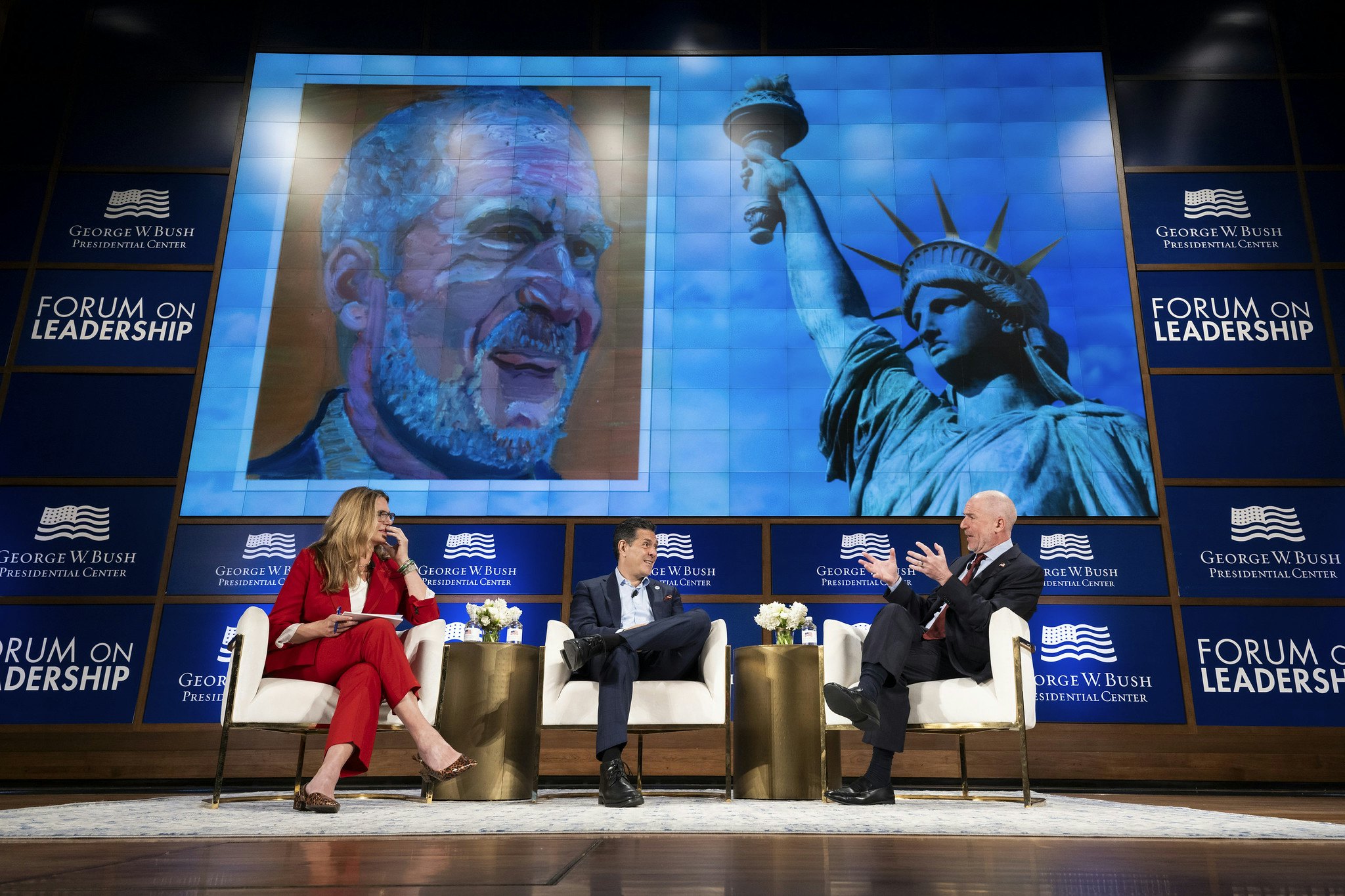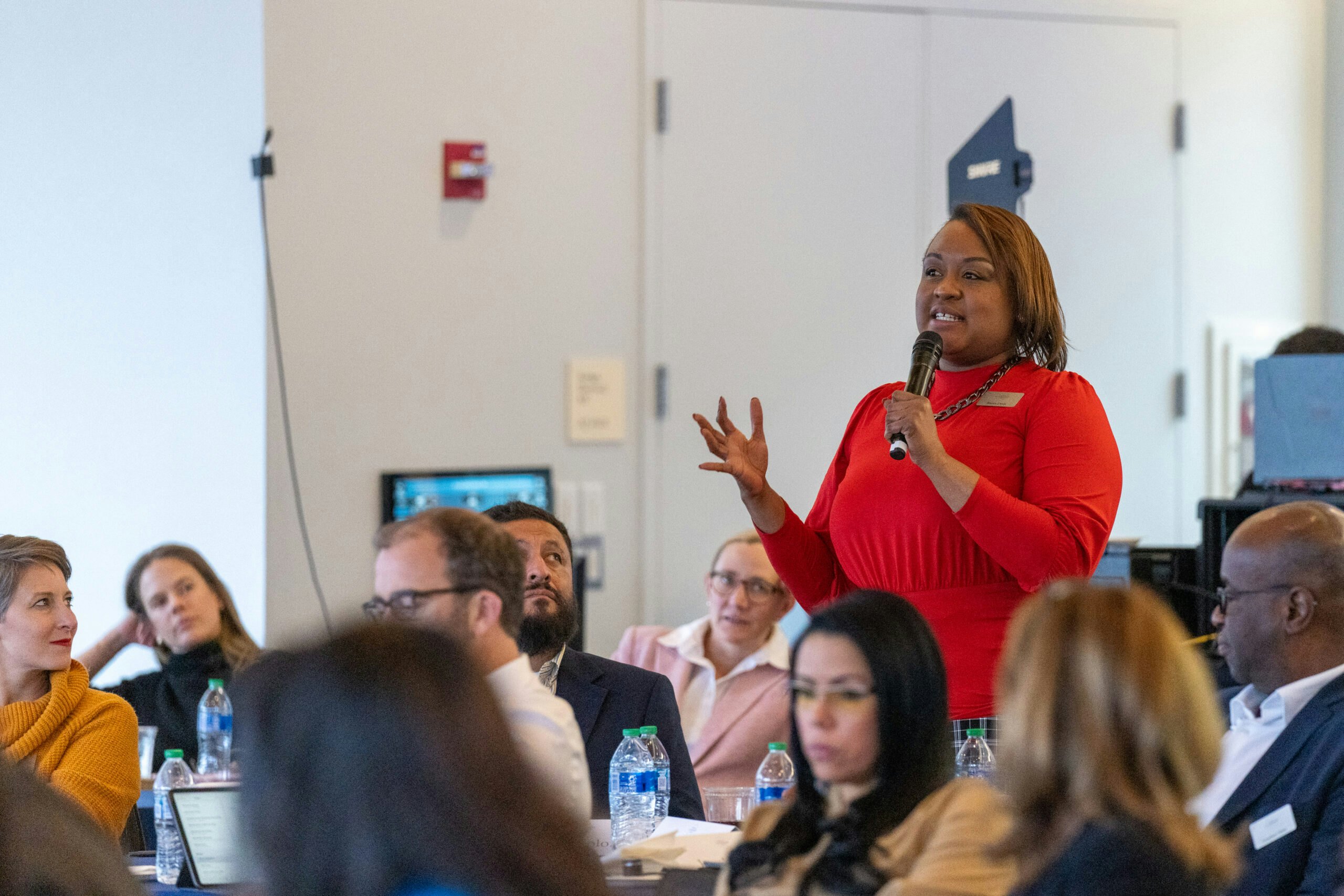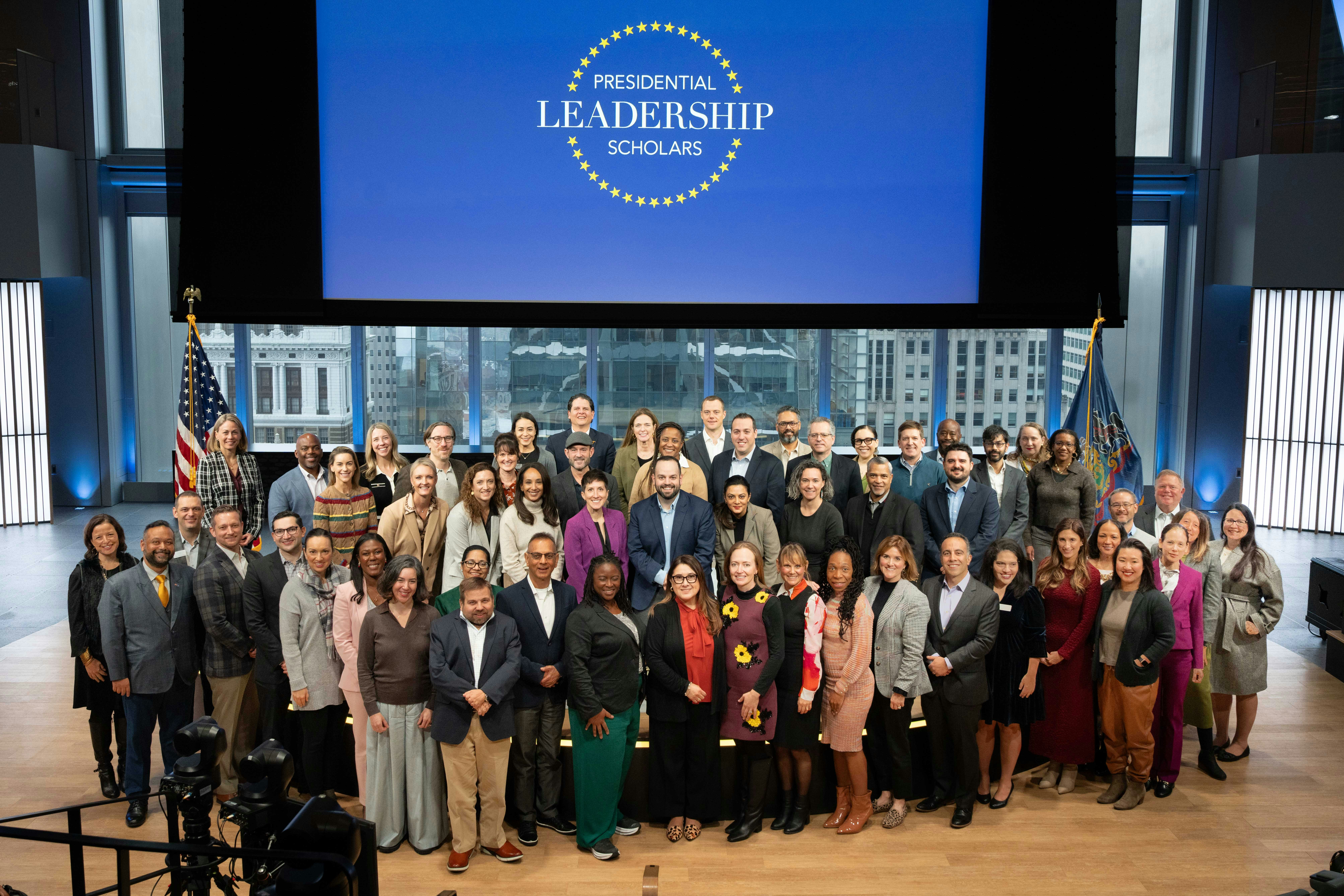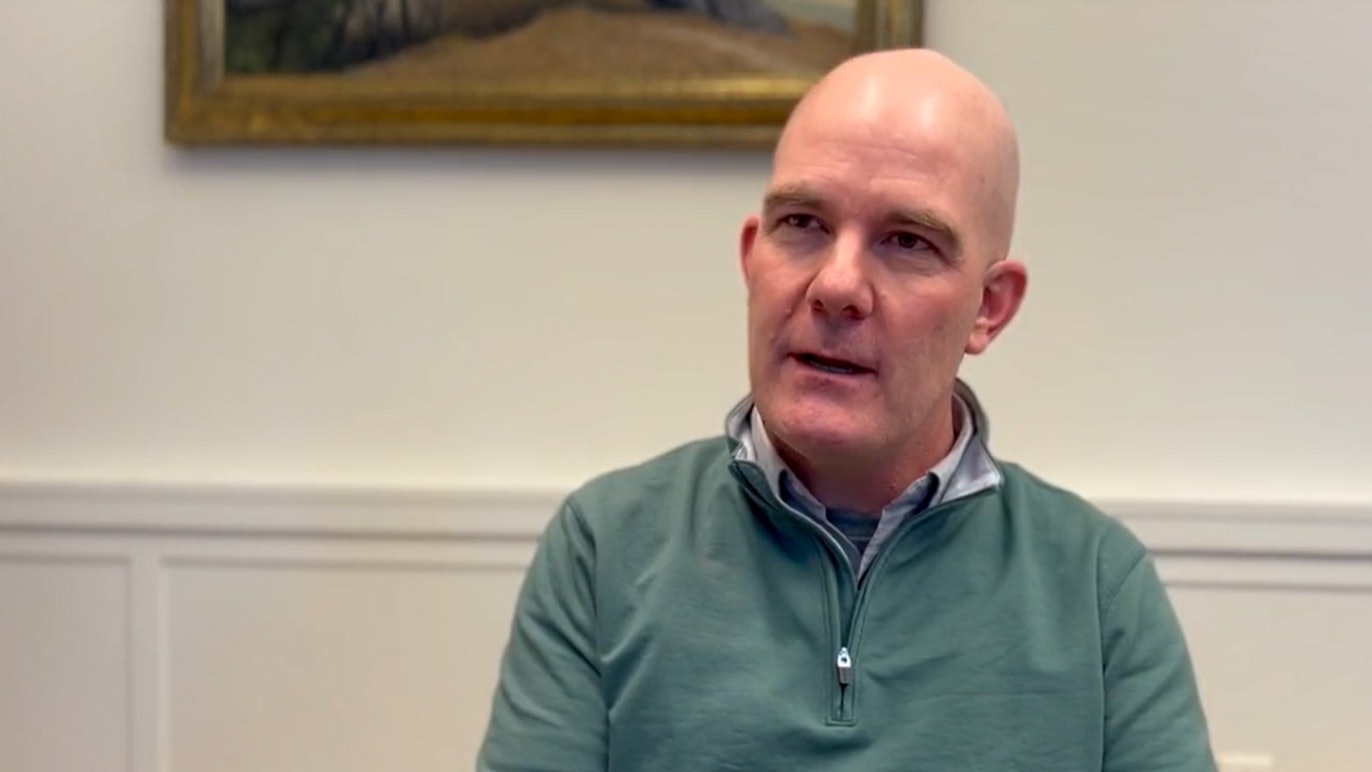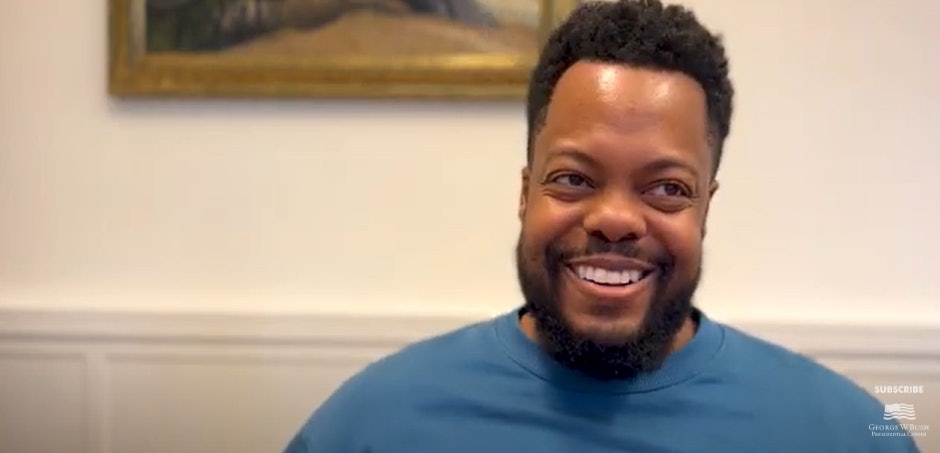Mike Hemphill is the Co-Director of the Presidential Leadership Scholars.
On Sept. 8, 2014, representatives of the presidential centers of Lyndon Johnson, George H. W. Bush, Bill Clinton and George W. Bush gathered in Washington D.C. to announce an innovative bipartisan leadership program – the Presidential Leadership Scholars.
The idea was to increase the impact of those already making a positive difference by sharing with them new ways of thinking about their leadership. And the goal was to attract a deeply diverse group of individuals with dramatically different lived experience who take a variety of perspectives to challenges in a multitude of sectors. In doing so, I believe we’ve introduced the Scholars to different ways of defining problems and solutions while also mitigating the growing polarization in our country.
Ten years ago, all of us involved in the program had the highest of hopes, but none of us knew where the PLS journey would take us. What I’ve learned along the way is that we are taking a dramatically different approach to leadership development. First, our selection process involves more than merely rank ordering the applicants on some set of criteria. Instead, at every step of the narrowing-down process we intentionally maximize the heterogeneity of the remaining applicants in the pool. After interviewing our finalists, we build a deeply diverse cohort comprised of people whose paths would never have crossed if it weren’t for their participation in the program.
Second, PLS is designed for those who want to do more than just learn about leadership. Even though program sessions are organized around the four presidencies, we’re not a presidential studies program or a policy analysis program. Instead, we explore how each of these presidents, the people who worked for them, and other established leaders in different sectors approached the leadership challenges they faced in the hopes our participants will find better ways of handling the challenges they are currently facing. Since every participant brings into the program a project they are working on, PLS operates more as a leadership lab. We don’t so much teach leadership, but instead help build the capacities of our Scholars to achieve positive outcomes.
The program attracts participants from the corporate, nonprofit, public, and military fields. And our Scholars are committed to facing challenges in their community – however they define community. For some, it’s their neighborhood. For others, it’s their city, state, or region. Some are working on issues with national or global impact. Each cohort has Scholars who have been working years on their project and others who are just starting out. Sometimes the projects are part of their day-to-day work and sometimes they are outside the scope of their full-time job. It’s this variety that contributes to the positive impact Scholars have with one another.
Finally, and maybe most importantly, PLS is more about the experience. Our goal has always been to structure the six months of activities in a way that promotes personal and professional connections among our participants. For example, in the very first session of the program, before they have time to figure out who is a republican or democrat, who works for a for-profit or not-for-profit, or who is working on global or local projects, I ask every Scholar to share a personal story. That simple act lays a foundation for the next six months that privileges the sharing of the personal experiences that have galvanized their core values over the labeling they may normally place on each other.
We live in a time when leadership is too often perceived as a persistent and non-yielding drive to a desired outcome. I believe leadership demands something more than that. It isn’t something you do to someone to guarantee the outcome you want. It emerges from the interactions you have with others, which means a big part of leadership is focusing on the way you interact with those whose perspectives are different from your own and listening to understand the other while postponing your desire to reach agreement (which too often means wanting to prove that we’re right and the other is wrong).
The combined effect of the broad heterogeneity of our cohorts, the focus on a more interactive approach to leadership, the inclusion of projects of variety of scales and stages of development, and a program experience curated to promote relationships among the Scholars has produced an outcome that has exceeded all of our expectations.
For many, their time in PLS has been transformative. Most have formed fast and oftentimes unexpected friendships with others in their cohort. Some share that PLS prompted their first meaningful conversations with someone with polar-opposite political views. For many, the PLS experience prompted a heightened focus for their work, with some even switching careers to better align their core values with their passion for making the world a better place.
In a letter he shared 10 years ago at the event announcing PLS, President George H. W. Bush said, “every so often there is an idea so compelling that it brings together former chief executives, and their foundations, to push it forward . . . . We face a lot of big challenges both in and out of government, so the idea of developing more leaders from all walks of life to address them and help lead our nation forward is vitally important in my view.”
That idea was compelling ten years ago for the LBJ Foundation, The George and Barbara Bush Foundation, The Clinton Foundation, and the George W. Bush Presidential Center. I believe it still is today. That’s why we look forward to the next ten years.




